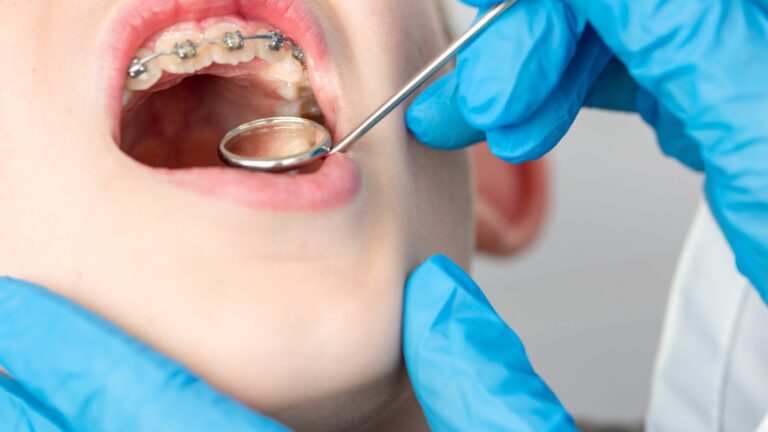Innovations That Are Shaping Hospital Care
Discover the latest innovations in hospital care that are making healthcare more efficient and improving patient outcomes.
Hospitals today are rapidly evolving, and much of this change is driven by innovation.
These innovations are making healthcare more effective, accessible, and patient-friendly.
But before we go deeper, it’s essential to understand one key term often used in hospital care — what is patient demographics ?
This refers to data such as age, gender, race, and other vital details that help hospitals tailor care to each patient’s needs.
Innovations in healthcare are helping hospitals use this data more effectively to improve treatments and overall patient experience.
Let’s explore how these innovations are shaping hospital care today.
How Technology is Changing Hospital Care
Technology plays a huge role in modernizing hospital care, making it faster, safer, and easier for both patients and healthcare professionals.
Here are some technologies hospitals are adopting:
- Electronic Health Records (EHR):
Gone are the days when hospitals relied on stacks of paper records. With EHRs, patient data is now stored digitally. This makes it easier for health workers to retrieve medical histories, lab results, and treatment plans in seconds. With all this information in one place, doctors can collaborate more easily and avoid errors, which improves patient safety and care. - Telemedicine:
Telemedicine allows patients to access doctors remotely. This innovation has been especially useful during the pandemic, enabling patients to stay in touch with healthcare professionals without needing to visit the hospital. Telemedicine also helps reduce wait times and gives access to care for those living in remote areas or with limited mobility. - Robotic Surgery:
Robotic-assisted surgery is a game-changer in hospital care. This technology allows surgeons to executecomplicated procedures with greater precision, leading to smaller incisions, reduced recovery times, and fewer complications. Patients benefit from quicker healing, less pain, and shorter hospital stays.
Benefits of these technologies include:
- EHR: Enables faster, more efficient sharing of patient information, reducing errors and improving coordination among healthcare providers.
- Telemedicine: Provides convenience for patients and healthcare providers, reducing the need for in-person visits.
- Robotic Surgery: Minimizes surgical risks, improves precision, and shortens recovery times.
The Importance of Data in Modern Hospitals
Hospitals now rely heavily on data to improve the quality of care they provide. The more data hospitals have, the better they can treat patients.
Let’s look at some key ways data is used in hospitals:
- AI in Patient Monitoring:
Artificial intelligence (AI) helps doctors and nurses monitor patients in real time. For example, AI can track vital signs like heart rate, blood pressure, and oxygen levels. If something is wrong, the system will alert healthcare providers immediately. This technology helps prevent emergencies and ensures that patients get the attention they need quickly. - Predictive Analytics:
Hospitals are also using predictive analytics to make better decisions about patient care. By analyzing trends and patterns, hospitals can predict patient needs before they even arise. For example, by examining previous cases, doctors can predict which patients are susceptible to developing complications and intervene before it’s too late.
How patients benefit from data innovations:
- Faster Response Times: AI monitoring allows for quick reactions to emergencies.
- Improved Care: Predictive analytics helps hospitals manage patient flow better, reducing overcrowding and ensuring patients receive timely care.
Personalize Patient Care
One of the biggest goals in modern healthcare is to make care more personalized.
Not all patients are the same, and hospitals are beginning to understand the importance of individualized treatments.
Here’s how hospitals are doing that:
- Genomic Medicine:
With genomic medicine, doctors can now tailor treatments based on a patient’s genetic makeup. This allows for more precise treatments that are specific to an individual’s genetic profile. For example, two people with the same disease may respond differently to treatment because of their unique genetic differences. Genomic medicine helps doctors find the right treatment for the right patient, making care more personalized than ever before. - Wearable Devices:
Wearable health devices, like fitness trackers and smartwatches, are becoming common in healthcare. These devices monitor things like heart rate, sleep patterns, and physical activity. Patients can wear these at home, and the data is sent directly to the hospital, allowing healthcare providers to keep track of their patient’s health without frequent hospital visits.
Benefits for patients:
- More Tailored Treatments: Treatments can now be personalized to meet the individual needs of each patient.
- Continuous Monitoring: Wearable devices help doctors track patients’ health without being there, allowing for early detection of potential issues.
Hospitals can now make the best recommendation for treatments based on a patient’s unique needs and data.
This personalized approach improves treatment outcomes and helps avoid unnecessary complications.
Enhance Patient Experience
Innovation isn’t just about technology; it’s also about improving the overall patient experience. Here are two innovations that are making a big difference:
- Virtual Reality (VR):
Virtual reality is helping reduce patient anxiety before surgeries. By wearing VR headsets, patients can escape into a calming virtual environment, which helps them feel more relaxed and less stressed about upcoming procedures. - Mobile Apps:
Many hospitals now offer mobile apps that allow patients to manage their care directly. Patients can check test results, communicate with their doctors, and schedule appointments — all from their phones. These apps help patients feel more in control of their healthcare.
Benefits of these innovations:
- Reduced Anxiety: Virtual reality helps patients relax, which can lead to better outcomes.
- Convenience: Mobile apps give patients easy access to important information and allow them to manage their care from home.
These simple innovations are making a huge difference in how patients experience hospital care, making it less stressful and more convenient.
Conclusion
Innovations in hospital care are changing how patients experience healthcare.
From technologies like EHRs and robotic surgery to personalized treatments through genomic medicine and wearable devices, hospitals are finding new ways to provide better care.
Data-driven approaches like AI and predictive analytics help doctors make more informed decisions, leading to faster responses and better patient outcomes.
At the same time, patient experience is improving through innovations like virtual reality and mobile apps that reduce stress and provide convenience.
As hospitals continue to evolve, staying informed about these innovations can help you take advantage of the best care available.
With personalized treatments, better technology, and improved patient experiences, hospitals are shaping a future where patients receive faster, more efficient, and individualized care.
By keeping up with these changes, patients and healthcare providers alike can benefit from a hospital experience that is not only effective but also centered around the needs of the individual.
Plagiarism free: https://prnt.sc/tdV60g3ZTEOv.






